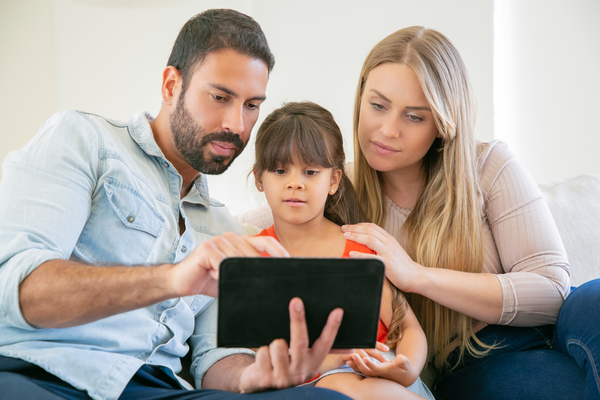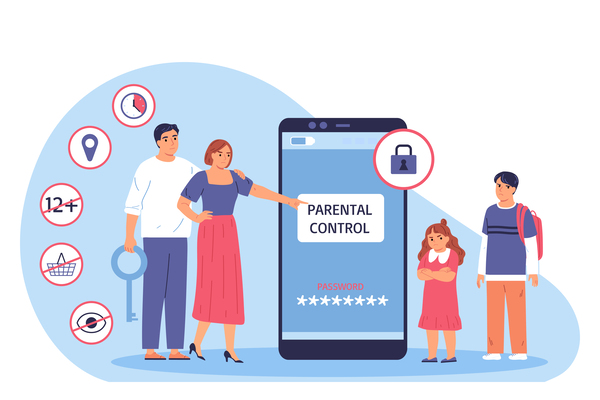Are you concerned about your child’s online safety and want to ensure they’re navigating the digital world responsibly? Look no further than the best hidden screen recorder for Android devices. In today’s digital age, where cyber threats like cyberbullying and online harassment abound, parents need reliable tools to monitor their children’s online activities discreetly. With the best hidden screen recorder for Android, you can effortlessly keep tabs on your child’s device usage, ensuring their safety and well-being without invading their privacy. Let’s delve into how this innovative solution empowers parents to safeguard their children in the ever-evolving online landscape.
Understanding Cyberbullying and Online Harassment:

Before delving into the role of parental control apps, it’s essential to understand what cyberbullying and online harassment entail. Cyberbullying refers to the use of electronic communication to bully, threaten, or intimidate others, often through social media platforms, messaging apps, or online forums. Online harassment involves similar behaviors but may target individuals based on their race, gender, sexual orientation, or other characteristics.
The Impact of Cyberbullying and Online Harassment on Children:
Cyberbullying and online harassment can have profound effects on children’s mental and emotional well-being. Victims may experience anxiety, depression, low self-esteem, and even thoughts of self-harm. These negative effects can extend beyond the digital realm and affect children’s academic performance, social relationships, and overall quality of life.
The Role of Parental Control Apps:

Parental control apps play a crucial role in protecting children from cyberbullying and online harassment by providing parents with tools to monitor and manage their online activities. These apps offer a range of features, including content filtering, social media monitoring, app blocking, and screen time management.
1. Content Filtering:
One of the primary features of parental control apps is content filtering, which allows parents to block access to inappropriate websites, content, and applications. By filtering out harmful or explicit material, parents can create a safer online environment for their children and reduce the risk of exposure to cyberbullying and online harassment.
2. Social Media Monitoring:
Many parental control apps offer social media monitoring capabilities, allowing parents to track their children’s interactions on platforms like Facebook, Instagram, and Twitter. By monitoring their children’s social media activity, parents can identify signs of cyberbullying or online harassment and intervene before the situation escalates.
3. App Blocking:
Parental control apps also enable parents to block access to specific apps or games that may pose risks to their children’s safety or privacy. By blocking apps known for cyberbullying or online harassment, parents can mitigate the likelihood of their children becoming victims of such behavior.
4. Screen Time Management:
Excessive screen time can increase children’s vulnerability to cyberbullying and online harassment by exposing them to a wider range of online interactions. Parental control apps often include screen time management features that allow parents to set limits on their children’s device usage and establish healthy digital habits.
Effectiveness of Parental Control Apps:

While parental control apps offer valuable features for preventing cyberbullying and online harassment, their effectiveness depends on various factors. These include the app’s functionality, the level of parental involvement, and the child’s willingness to comply with parental restrictions. Additionally, parental control apps are not foolproof and may have limitations in monitoring encrypted or anonymous online activities.
Tips for Implementing Parental Control Apps:
To maximize the effectiveness of parental control apps in preventing cyberbullying and online harassment, parents should take the following steps:
- Choose the Right App: Select a parental control app that offers the features you need and is compatible with your child’s devices.
- Communicate with Your Child: Have open and honest conversations with your child about the importance of online safety and the role of parental control apps in protecting them from cyberbullying and online harassment.
- Set Clear Rules and Boundaries: Establish rules and guidelines for your child’s online behavior, including what websites they can visit, who they can communicate with, and how much screen time they are allowed.
- Monitor and Review Activity: Regularly review your child’s online activity using the parental control app’s monitoring tools and be vigilant for signs of cyberbullying or online harassment.
- Empower Your Child: Teach your child how to recognize and respond to cyberbullying and online harassment, including how to block and report abusive behavior and when to seek help from a trusted adult.
How to Protect Your Kids Online:
Watch a video tutorial on ‘Parental Control and How to Protect Your Kids Online’ for expert tips and practical strategies to keep your children safe in the digital world.
Conclusion:
Parental control apps play a vital role in preventing cyberbullying and online harassment by empowering parents to monitor and manage their children’s online activities. By leveraging features such as content filtering, social media monitoring, app blocking, and screen time management, parents can create a safer online environment for their children and mitigate the risks associated with digital communication. However, parental control apps are not a substitute for parental guidance and communication. It’s essential for parents to engage actively with their children, educate them about online safety, and foster open dialogue about their online experiences. With the right combination of parental supervision and technological tools, we can work together to protect children from the harmful effects of cyberbullying and online harassment in the digital age.
FAQs:
Parental control apps are software tools designed to help parents monitor and manage their children’s online activities, including internet browsing, app usage, and screen time.
Parental control apps offer features such as content filtering, social media monitoring, app blocking, and screen time management, which help parents create a safer online environment for their children and identify and address potential instances of cyberbullying or online harassment.
Most parental control apps are compatible with a wide range of devices, including smartphones, tablets, computers, and gaming consoles. However, compatibility may vary depending on the app and the device’s operating system.
Parental control apps may have limitations in monitoring encrypted or anonymous online activities, as they rely on access to device data and network traffic. However, some apps offer features to monitor specific types of encrypted communications or detect suspicious online behavior.
Parental control apps enable parents to set screen time limits for their children’s devices, allowing them to specify how much time their children can spend online each day and establish designated screen-free periods, such as during meals or bedtime.
While parental control apps are intended to protect children from online threats, there is a delicate balance between monitoring and respecting children’s privacy. It’s essential for parents to use parental control apps responsibly and communicate openly with their children about the purpose and limitations of monitoring their online activities.
Yes, parental control apps offer features to block access to specific websites, apps, or content categories deemed inappropriate or harmful for children. Parents can customize these restrictions based on their child’s age, interests, and individual needs.
Parents can promote responsible digital citizenship by teaching their children about online safety, privacy, and ethical behavior, fostering open communication about their online experiences, and leading by example in their own digital habits.
While parental control apps offer valuable tools for monitoring and managing children’s online activities, their effectiveness in preventing cyberbullying and online harassment depends on various factors, including the app’s features, parental involvement, and the child’s willingness to comply with parental restrictions.
No, parental control apps are not a substitute for parental guidance and communication. While they provide valuable assistance in monitoring and managing children’s online activities, it’s essential for parents to engage actively with their children, educate them about online safety, and foster open dialogue about their digital experiences.